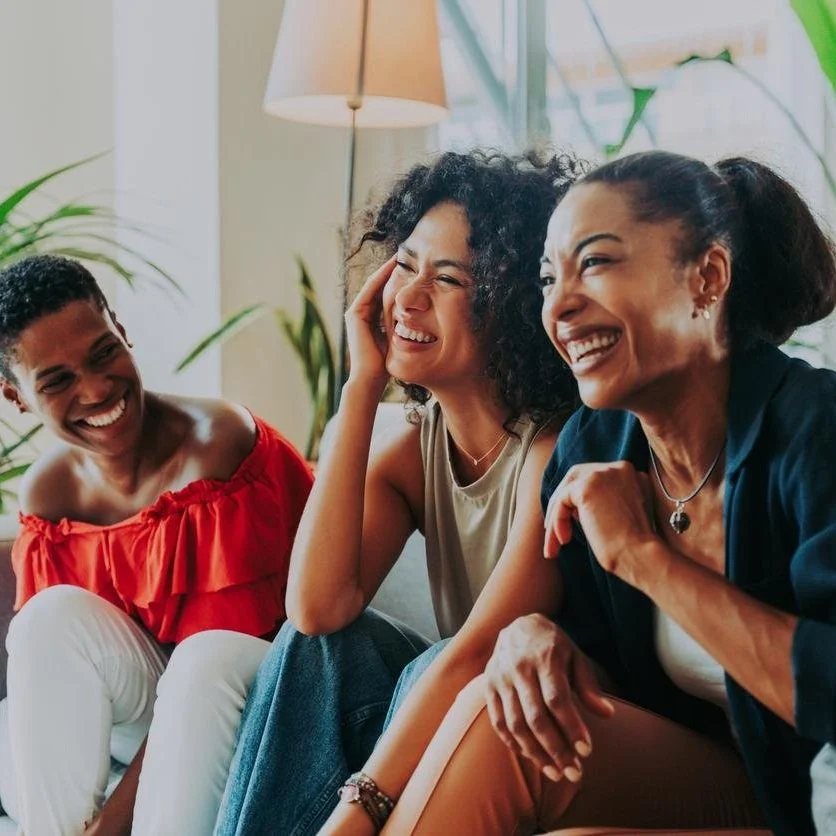How to Make Friends as an Adult
Learn practical tips for making meaningful friendships as an adult and building lasting connections, despite the challenges of busy schedules and social circles. We discuss it here!
Photo Credit: Diamond Dogs via iStockPhoto.com
By: Jamila Gomez
Making friends as an adult can feel like an uphill battle. Unlike childhood or college years, where friendships seem to form effortlessly, adulthood often brings new challenges—busy schedules, responsibilities, and sometimes, the daunting feeling that everyone else already has their social circle. But the good news is that it's entirely possible to make new friends as an adult, and the process can be both fulfilling and enjoyable. Here’s how you can do it.
1. Understand That It’s Normal
First, it’s important to recognize that feeling lonely or wanting new friendships is entirely normal. Many adults find themselves in a place where their old friendships have drifted apart due to life changes like moving, career shifts, or starting a family. Accepting this as a natural part of life can ease the pressure and make you more open to new connections.
2. Put Yourself Out There
Making friends requires you to step out of your comfort zone. It might mean joining a new club, attending social events, or even striking up conversations with strangers in situations where you normally wouldn’t. Activities like joining a gym, signing up for a cooking class, or attending a community event can be great ways to meet like-minded people.
3. Leverage Your Existing Network
Sometimes, the best way to make new friends is to connect more deeply with acquaintances or friends of friends. If you know someone casually, invite them to hang out one-on-one. Attending social gatherings where you know a few people but aren’t necessarily close to everyone can also be a great way to expand your circle.
4. Be Genuine
Authenticity is key when forming new friendships. Be yourself, and let your personality shine through. People are drawn to those who are genuine and open. Don’t be afraid to share your interests, opinions, and even vulnerabilities. Real connections are built on honesty and mutual understanding.
5. Practice Active Listening
One of the most important aspects of making friends is showing a genuine interest in others. Ask questions, listen attentively, and remember details from your conversations. This not only shows that you care but also helps build a stronger connection. People appreciate when they feel heard and understood.
6. Be Patient
Building friendships takes time. Just like any relationship, friendships require effort and consistency. Don’t be discouraged if it takes a while to find your tribe or if not every connection turns into a close friendship. Keep putting in the effort, and over time, meaningful relationships will develop.
7. Use Social Media Wisely
While face-to-face interactions are invaluable, social media can be a useful tool for making friends as an adult. Platforms like Meetup, Bumble BFF, or even hobby-specific Facebook groups can help you connect with people who share your interests. However, be sure to transition online interactions to real-life meetings whenever possible to deepen the connection.
8. Be Open to Different Types of Friendships
As an adult, your friendships might not look like they did when you were younger. Some friends may be coworkers, others may be parents you meet through your children, and some might even be people you only see once in a while but have a deep connection with. Embrace the variety and recognize that different friends can fulfill different roles in your life.
9. Take the Initiative
Don’t wait for others to make the first move. If you meet someone you’d like to get to know better, suggest getting together. Whether it’s grabbing a coffee, going for a walk, or attending an event together, taking the initiative shows that you’re interested in building a friendship.
10. Maintain the Friendship
Once you’ve made a new friend, maintaining the friendship is crucial. Regular communication, whether through texting, calling, or meeting up, is key to keeping the bond strong. Also, be supportive, celebrate their successes, and be there during tough times—just like you would with any other important relationship.
Making friends as an adult may require more effort and intention than it did when you were younger, but it’s definitely worth it. Friendships enrich our lives, provide support, and bring joy. By being open, proactive, and patient, you can build meaningful connections that last a lifetime. So, take that first step—put yourself out there, and start making friends!
YOU MAY ALSO BE INTERESTED IN:
SHARE TO SOCIAL MEDIA
Take Care Of Yourself: Why You Should Practice Self-Care
As you grow older finding time for yourself becomes more of a challenge, but nothing in life should be more important than the state of your mental health! Making yourself a priority and practicing self care is necessary to change your life for the better!
By: Deveney Marshall
After all of the craziness that’s been taking place over the past few years in our country, the word self-care has become often used in everyone’s vocabulary. The term self-care is well...self-explanatory. It simply means isolating some time away from everything else in life and caring for yourself.
As you grow older finding time for yourself becomes more of a challenge. With the freedom that comes with becoming an adult, so does careers, bills, friendship circles, and love-lives. Before you know it you won’t have any real time for yourself, leaving you feeling overwhelmed and downright stressed.
>> RELATED: You Attract What You Are: Using The Law Of Attraction To Better Your Life
When I turned 26 I realize just how burned-out I was. As a young woman working intensely hard to turn my dreams into reality, I don’t have much downtime. I normally work between 10-12 hour days, 5-6 days per week, and still attempt to maintain a social life. It wasn’t until one day my body decided to crash and I literally couldn’t get out of bed that I realized how fatigued I was. It became clear at that moment I needed to slow the hell down. I made a promise to myself, from that day forward, I would begin to take at least 2 hours for myself each day to do absolutely nothing, and take at least one weekend a month for myself as well.
Taking wellness days per week began to help a tad, but I still found myself feeling cluttered even when I was alone. After contemplating why my days off still wasn’t contributing to me feeling well, it finally occurred to me I wasn't practicing self-care as far as my mental health was concerned. As a black person, especially as a black woman, these last few years have been incredibly emotional, and the trauma I had been experiencing weighed heavier on my conscious than I thought.
I wasn’t protecting my spirit, and the outside influences of my day-to-day were affecting me mentally and spiritually. I thought if I ignored the negative things taking place around me then they wouldn't affect me, but avoiding the problems of the world only made me more numb to them, and not forget them. Once I was alone, I was forced to deal with my inner-thoughts and they were LOUD. It became apparent in order for me to begin to truly practice self-wellness I would have to learn how to deal.
I began to give myself permission to feel, and express whatever I was feeling about a particular topic in that present moment. It did wonders for my well-being, but unfortunately, when you’re an expressive black woman you get the label of being angry. However, my mental health was way more important than any person’s opinion of me. Once I fully committed to making the art of self-care a routine practice, I actually began to see improvements within myself. My skin glowed more, I became much calmer and noticeably happier. I grew into this person whose level of chill was even unrecognizable to myself.
>> RELATED: 3 Tips To Overcoming And Breaking Bad Habits
Now, I have the art of self-care down to a tee, and I just want to encourage others to do the same. Nothing in life should be more important than the state of your mental health. Start being kinder to yourself; Being a little more selfish. Take some real time to invest in you and your needs. There is nothing wrong with putting yourself first!
If you haven't developed a self-care routine I highly suggest you do so. I promise once you do, you’ll begin to see your life change for the better.
Happy Self-Care,
Deveney M.













